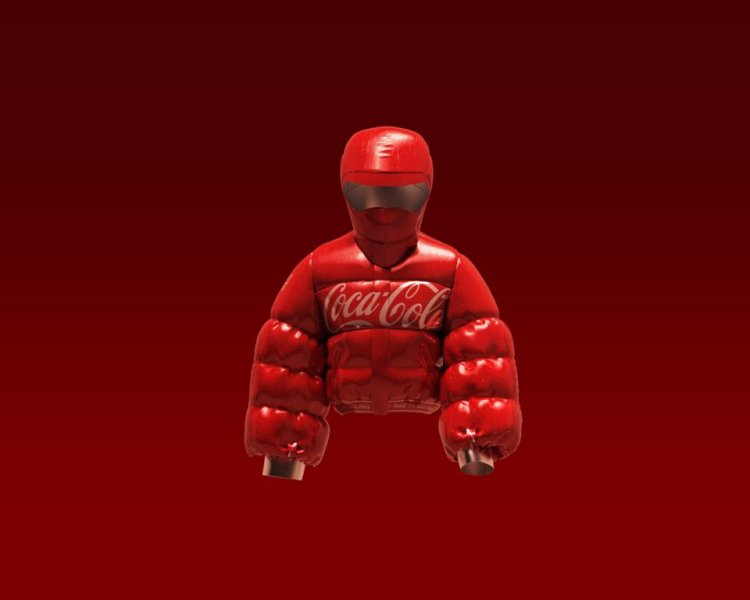As Coca-Cola Has Its First NFT Auctions, More Brands Are Entering The Metaverse

Coca-Cola is leveraging its collection history as the first NFT as marketers continue to experiment with the intersection of cryptocurrency and culture. The Atlanta-based beverage conglomerate is selling a series of four NFTs known as irreversible tokens, which are sold as a single asset and the proceeds will be donated to the International Special Olympics.
NFTs are digital assets powered by blockchain technology and have been rapidly adopted this year by artists and crypto enthusiasts alike. Interest in the sector has prompted companies from Pringles to entertainment brand Superplastic to create NFTs to penetrate the crypto zeitgeist.
CocaCola has teamed up with Tafi, a Utah startup that creates avatars and other virtual content to debut digital assets, to resurrect a pixelated version of the classic 1956 Coke vending machine. But instead of the soda cans inside, the Friendship Box will look like a loot box from a video game. CocaCola's own Ethereum-powered NFT mining crate includes a wearable metallic red bubble jacket inspired by the company's old shipping mods, but it glows with a hissing sound.
The series also includes a digital version of a 1940's Coca-Cola collectible card and a "Sound Visualizer" featuring classic Coca-Cola sounds like opening a bottle and pouring a drink on ice. The Coca-Cola auction starts on July 30th and runs through August 2nd on OpenSea, an online marketplace for NFTs and other crypto collectibles.
“You have given me so many opportunities to explore the eternal space that digital space has to offer. "It's a really great combination of form, function and aesthetics," said Joshua Schwarber, Senior Director of Global Digital Design at CocaCola. “So the ability to do things that move and bring a work of art to life, or the ability to reinterpret assets in new and unique ways to create multisensory experiences.”
CocaCola has extensive experience creating and selling collectibles in the real world. A Norman Rockwell Coca-Cola 4-cut limited edition set is available on the company's website for $400, and a vintage German Trink plastic cooler is available for $550. You can also find a $275 Steuben Crystal 125th Anniversary Bottle, a 1970 Chevrolet Holler Set for $34.95, and a 100-Year Collection for $25. Matt Wilburn, President of Tafi, said, “I am amazed that the CocaCola brand has been a collector's favorite for three centuries. “It's the 1800s, the 1900s, and now we're looking for ways to create NFTs that reflect the brand love of those years. You're making a completely timeless NFT that literally doesn't exist in the real world today, but what if you look forward to the next century?
According to Oana Vlad, Senior Director of Global Strategy, CocaCola's Trademarks Division, the NFT realm is changing very rapidly, so the company's work “almost every day — and probably needs to evolve faster than any other project.”
As culture approaches the digital world, Tafi COO Tai Duperron believes that people don't need clothes like what they get in real life.The company has already worked with CocaCola's physical product division on other digital wearables for CocaCola for other brands and platforms. He said he planned to make it, but decided to do something "more meaningful than just a fad." It turned into a wearable item,” Duperron said. “There were no landmarks because nothing existed, so we couldn't start a particle system and call it fizz. There are clear points and methods for Fizz to respond to," he said.
Coca-Cola is just one of many well-known brands experimenting with NFTs this year. On Wednesday, Campbell's teamed up with artist Sofia Chang and NTWRK's video shopping app to create an NFT collection dedicated to the new design of the soup company's brand. And while Taco Bell was one of the first to jump on the NFT station wagon when it released its “limited edition” NFT tacos, even luxury brands like Dolce & Gabbana had launched their own high-fashion NFT collections until this month.
Interest has also sparked marketing agencies to create NFT units. VaynerNFT, a new agency set up under VaynerMedia earlier this month, launched AnheuserBusch InBev as the well-known agency NFT of the beer conglomerate. (This summer, Stella Artois auctioned several NFTs, even before the parent company partnered with Weiner.)
People are more likely to buy from celebrities than companies, so they have a good understanding of branded NFTs. Gary Vaynerczak said: Co-Founder and CEO of VaynerMedia, known for its rapid adoption of digital platforms. This means that businesses must compete on the basis of merit, with the right assets and the right “cultural values.” Vaynerchuk is generally optimistic about NFTs, but most branded projects can turn into a "disaster" without the right approach.
"I know the brand and they will compromise on what is good for the consumer, but not for him." "And they will come out of selfishness. 'I want this', I want that', 'This is important'... They will come from politics, not consumer orientation, and that will hurt them."
The close community of crypto enthusiasts and artists is setting high standards for marketers who want to play in space. To do this, Boye Faginmi, co-founder and chairman of Future Party, says businesses must "have this cultural marker in the NFT space." (The Future Party collaborated with artist David Datuna, famous for eating banana art at Art Basel Miami in 2019, on an NFT for Dole.)
Fajinmi says some brands are more creative than connecting with a right-wing audience. said that it seems to be , added that the NFT should be taken seriously, not joking. For example, P & Gown Charmin was selling toilet paper-themed NFTs.
“There is a really strong NFT community,” says Fajinmi. “And I think most of the population will cool off with this, but I think this community will continue to cause commotion. And it's going to be a world where NFTs are like, "Oh, we owe NFTs," and everybody does.







